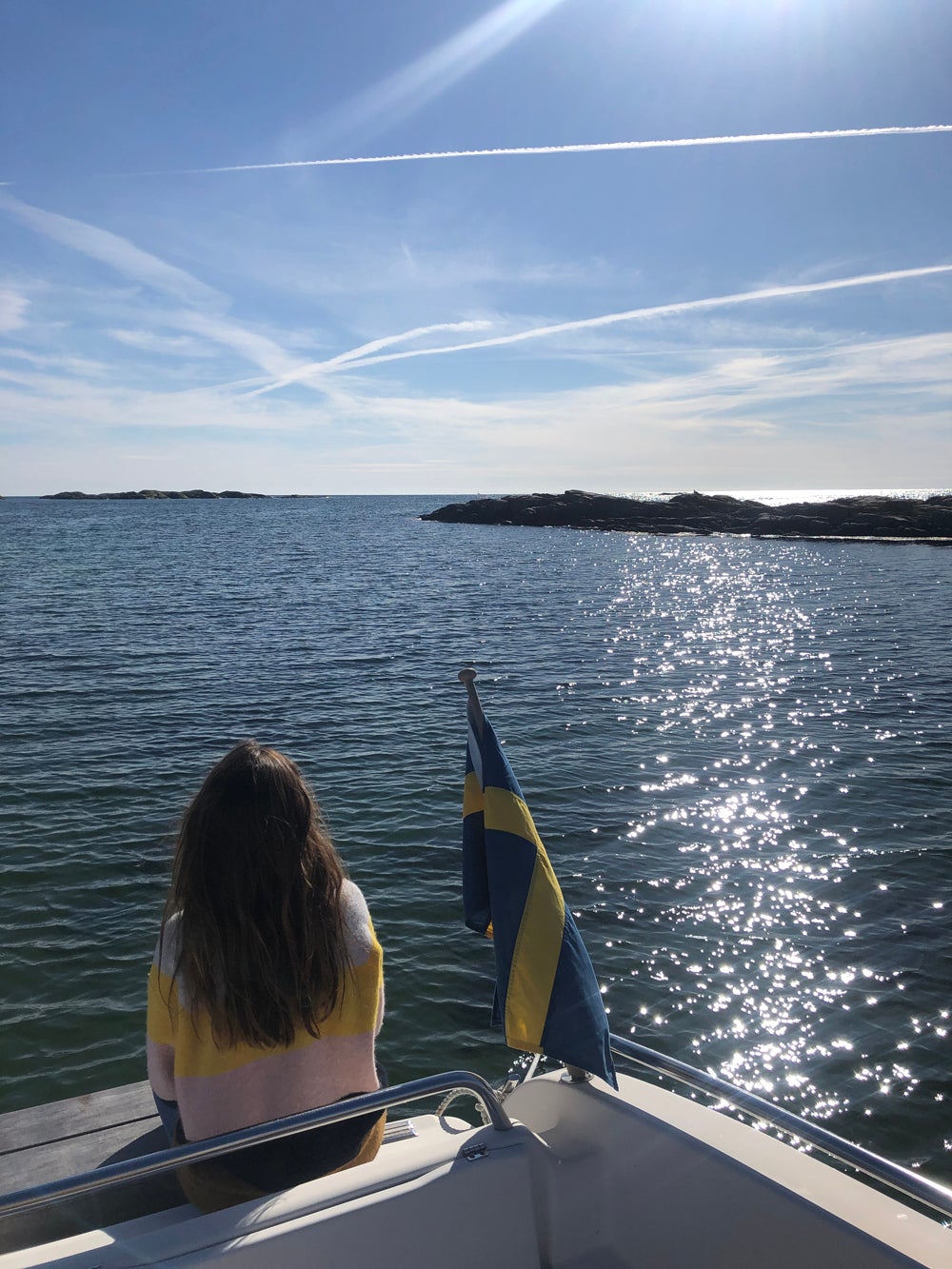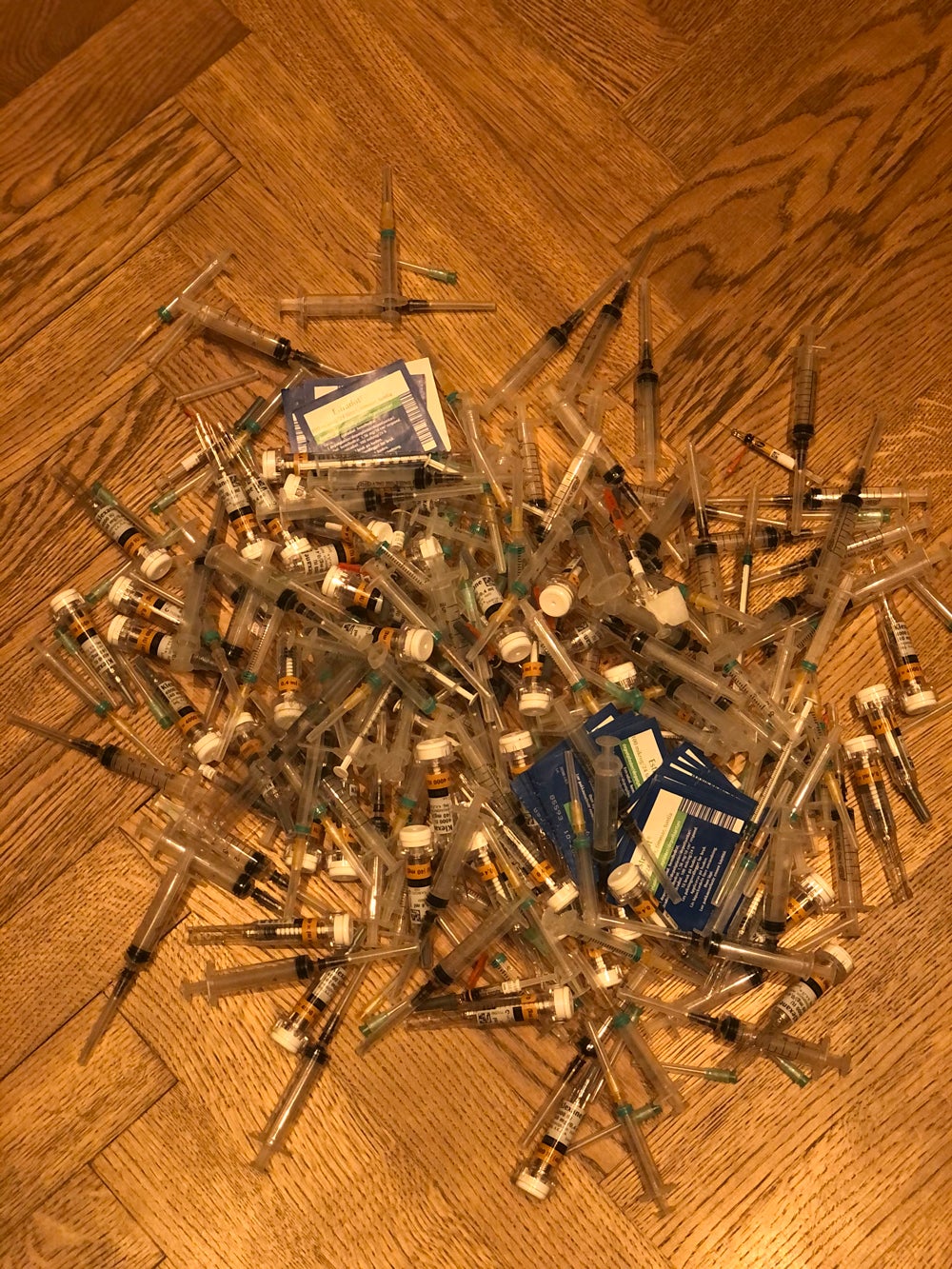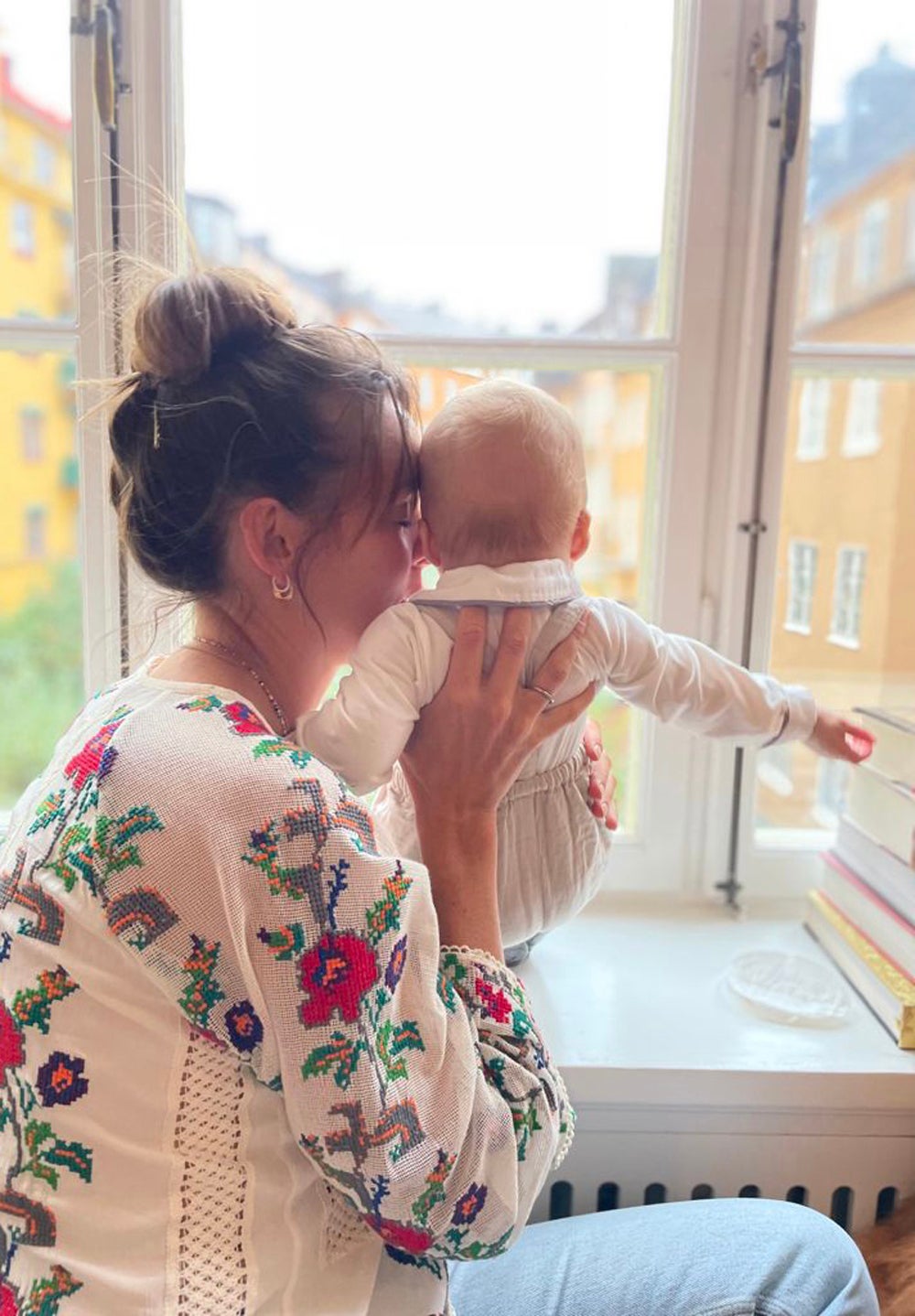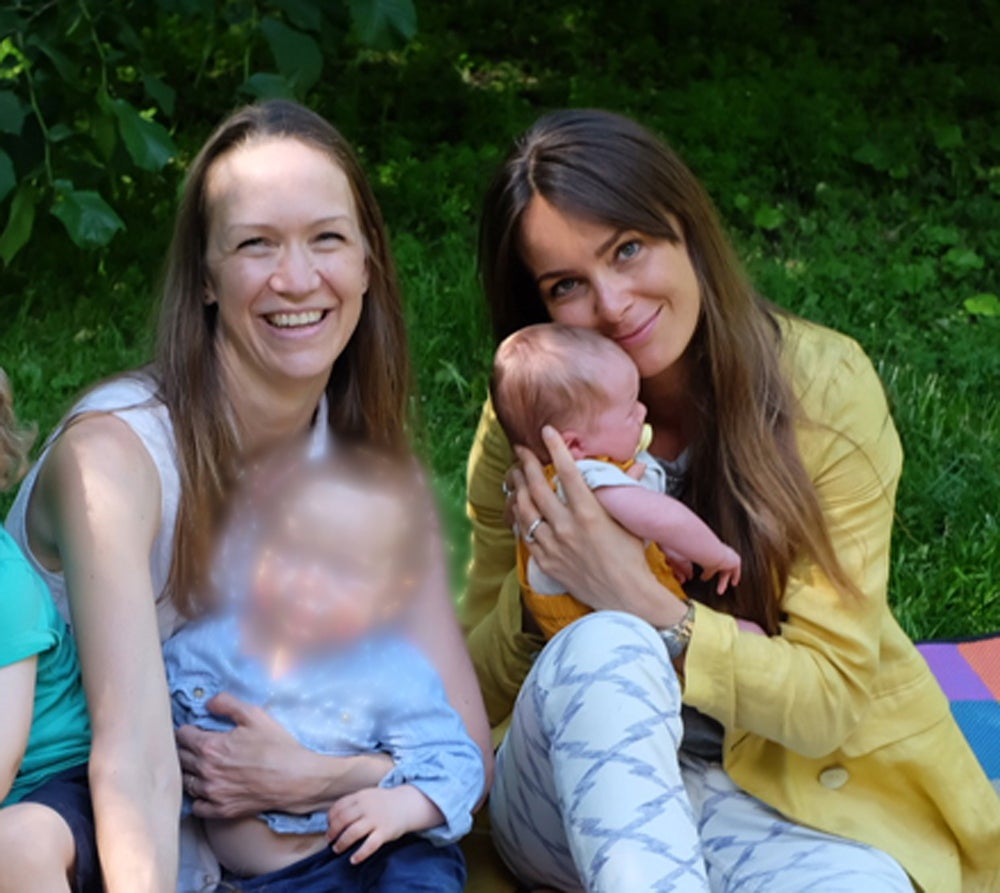
A high-flying professional who traumatically lost four pregnancies in two years before having her “miracle” son has devoted her life to helping others with fertility issues, launching a multi-purpose app for those dealing with them.
When Anna Sane, 37, and her husband Philip, 41, started trying for a family in the spring of 2018 they fell pregnant quickly, only to miscarry at eight weeks – the first of four pregnancies they were to lose between eight and 20 weeks gestation.
Anna, who lives in Stockholm, Sweden, with Philip and their son Lev, one, said: “When we first started trying for a baby, like a lot of people, I hadn’t thought about the fact it would be a problem.
“I didn’t know much about fertility. I barely knew when I ovulated. I thought having a baby would be simple.”
Instead, the couple stepped into a world of heartbreak.
Anna said: “In retrospect, I was naive. I thought just getting pregnant meant it would all go well.
“At eight weeks I started bleeding, went to the hospital and a miscarriage was confirmed.
“The doctors were telling me it was common and didn’t mean there had to be issues – that I could have a successful pregnancy in the future.
“But, emotionally, I almost surprised myself by how sad I was. I became obsessed that I had to get pregnant again as soon as possible.
“People were telling me miscarriage is common and to move on. But I think we, as a society, need to acknowledge that a lot of people experience a lot of stress and sadness after miscarriage, no matter how early or common it is.”
Anna said she “quickly became obsessed” with falling pregnant again – and she did.
People told me it would maybe work out next time, without acknowledging the loss I felt.
She said: “During early pregnancy, I was really worried and expected it to go wrong like my first pregnancy. But time passes and I became more and more confident as we passed 12 weeks.
“But at the 20 week scan doctors explained our son wasn’t healthy.”
The couple’s baby, who they named Malcolm, was not developing properly in the womb.
Malcolm had multiple organ malformations and would not have survived after birth.
Anna said: “The decision we had to make then was whether we continued the pregnancy or terminated it. It was an extremely difficult decision.
“Medically, yes, it was a termination. But emotionally, it was like my baby died.”
She added: “It was the same as before, though the intensity of my emotions was very different.
“And, just like before, people told me it would maybe work out next time, without acknowledging the loss I felt.
“Even if I did fall pregnant again, another baby could never give me back the one I lost. I felt utterly unprepared for the fact that this was an actual delivery I had to go through.
“One of the hardest things was that I really needed to grieve for this child, but I was also on a journey where I wanted a baby and there was this push to move forward. There felt like no time to stop.”
Malcolm was delivered in autumn 2018 and Anna and Philip began genetic investigations to see if any future children could have similar issues.
When nothing was found, Anna says they were told it was simply “bad luck.”
Even if I did fall pregnant again, another baby could never give me back the one I lost.
Within months, finding herself pregnant for a third time, she said: “I felt things couldn’t go wrong this time.
“It wouldn’t make any sense. I’d had my share of bad luck.
“But, at 11 weeks, it was found I’d suffered a missed miscarriage. This is when the baby has died in the womb but the mother has had no outward symptoms of miscarriage.
“That’s when things started to feel really hopeless.”
Following her third loss, Anna began researching fertility issues online.
She said: “That is something a lot of us who are trying to conceive have in common.”

Anna added: “We spend hours and hours on Google trying to understand our situations, but the information that is there is all over the place, as fertility is so personal. There are so many things that can go wrong.
“You’re in a different position if you’re 25 and have blocked tubes than if you’ve had five failed tries at IVF. But the information is all mixed up together.”
Realising she was keen to “put fate in someone else’s hands,” Anna decided to start IVF in 2019.
As it was not available in Sweden, she headed to Finland to have a process whereby embryos are screened for chromosomal abnormalities prior to implantation.
She said: “As we’d never had an issue with actually falling pregnant, the doctors were so confident.”

She added: “They kept telling me next time they saw me I’d be pregnant. A lot of eggs were harvested, we had a large amount of healthy embryos and it all looked positive.
“But the idea of the freedom of putting it all in someone else’s hands was an illusion. There were tonnes of new things to keep track of.
“There was so much medicine tracking. In the end, I did three transfers and never fell pregnant.
“Even though I understood it wasn’t my fault, I felt a lot of shame and like a failure.”
Anna also felt stifled by the “toxic positivity” of those around her, who urged her to keep a positive outlook and keep trying.
She explained: “People would say, ‘Wow, how exciting you get to do IVF.’ But you wouldn’t say that to someone having cancer treatment or knee surgery.”
When he was born I felt such natural joy in every sense.
Anna added: “As a society we don’t have codes, rules or norms on how to support someone going through fertility issues. I felt lonely.”
After taking a short break following the failed attempts at IVF, Anna and Philip fell pregnant again naturally in early 2020.
While she was terrified in the early weeks of pregnancy, all seemed to be going well until a scan at 17 weeks.
It was then that Anna was told the devastating news that her unborn daughter, Aya, had the same issues as their son Malcolm.
And the couple made the harrowing decision to have another medical termination, followed by further genetic testing.
Again no issues were found, but Anna said: “Doctors said that it was likely Philip and I had an unidentified genetic issue.”

She added: “They could only tell us it was likely there was a 25 per cent risk that we’d have a baby that wasn’t healthy.
“For me, that 25 per cent had been four losses in a row. I couldn’t lose another baby like that.
“So, we decided to get rid of one person’s DNA and use donor eggs.”
This time, Anna quickly fell pregnant using donor eggs and Philip’s sperm in August 2020.
After a harrowing two years, the couple’s son Lev was born healthy in May 2021.
Anna said: “When he was born I felt such natural joy in every sense. He’s a very happy baby. We’re amazed to have him in our lives.”
Fertility issues should be considered a medical issue, and should receive equal treatment within society, to other health challenges.
But, while she is now delighted to be a mum, her experience has left its mark.
Anna said: “I had seven or eight apps on my phone tracking various things. One for my cycle, one for mindfulness, another for IVF tracking. It makes no sense and is confusing.”
While trying for a baby, Anna had met Jenny-Ann Ax:son Johnson.
In 2019 she left her job as a management consultant in a digital strategy team and together the pair launched Tilly in 2021, a fertility app that helps combine advice, psychological support, peer support and fertility tracking.
She explained: “We wanted to create a place to offer support at all points. From those first questions when you might start trying for a baby right through to for those in treatment.
“Although we don’t give medical advice, all our information is evidence-based to help our users navigate the information that is out there and to assist them to have more informed dialogues with their doctors.”

Anna added: “We find fertility patients undergo a huge amount of stress. Research shows that connecting with others that understand your challenges is a strong way to reduce stress. This is why we integrate peer support in the Tilly platform and try to match users based on their experiences.
“Based on what we know of our individual users, we tailor their experience from treatment schedules to personalised education resources and coping tools.”
With the app’s user base now growing, Anna employs a team of seven. Each is offered paid time off for IVF and “disappointment days” for negative pregnancy tests.
Anna said: “There legally isn’t the same protection for people trying to fall pregnant as there is for people who are having a baby.
“Fertility issues should be considered a medical issue, and should receive equal treatment within society, to other health challenges. There shouldn’t be preferential treatment based on medical conditions, especially in the workplace.
“I think this paid leave should be extended to all other workplaces. You shouldn’t have to go through fertility treatment and take holidays. While I had multiple miscarriages at varying gestation, I say now that all these years have given me four babies. Malcolm, Aya, Lev and now Tilly.”
Tilly is available on the app store and Google play.







